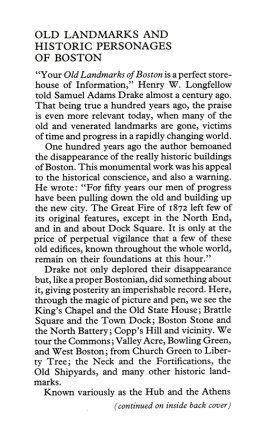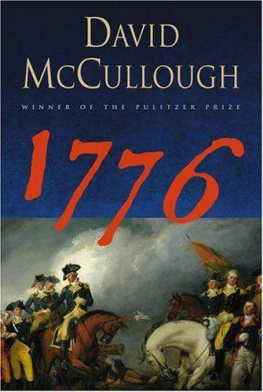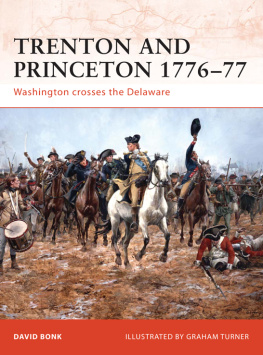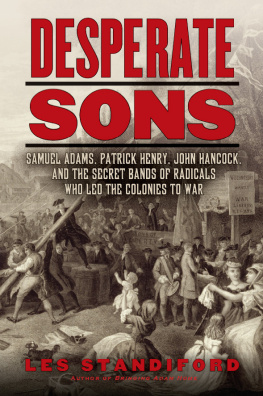PRELUDE
Table of Contents
Seldom , in the annals of war, has a single campaign witnessed such a remarkable series of reverses as did that which began at Boston in March, 1776, and ended at Morristown in January, 1777. Only by successive defeats did our home-made generals and our rustic soldiery learn their costly lesson that war is not a game of chance, or mere masses of men an army.
Though costly, this sort of discipline, this education, gradually led to a closer equality between the combatants, as year after year they faced and fought each other. When the lesson was well learned our generals began to win battles, and our soldiers to fight with a confidence altogether new to them. In vain do we look for any other explanation of the sudden stiffening up of the backbone of the Revolutionary army, or of the equally sudden restoration of an apparently dead and buried cause after even its most devoted followers had given up all as lost. As with expiring breath that little band of hunted fugitives, miserable remnant of an army of 30,000 men, turning suddenly upon its victorious pursuers, dealt it blow after blow, the sun which seemed setting in darkness, again rose with new splendor upon the fortunes of these infant States.
Certainly the military, political, and moral effects of this brilliant finish to what had been a losing campaign, in which almost each succeeding day ushered in some new misfortune, were prodigious. But neither the importance nor the urgency of this masterly counter-stroke to the American cause can be at all appreciated, or even properly understood, unless what had gone before, what in fact had produced a crisis so dark and threatening, is brought fully into light. Washington himself says the act was prompted by a dire necessity. Coming from him, these words are full of meaning. We realize that the fate of the Revolution was staked upon this one last throw. If we would take the full measure of these words of his, spoken in the fullest conviction of their being final words, we must again go over the whole field, strewed with dead hopes, littered with exploded reputations, cumbered with cast-off traditions, over which the patriot army marched to its supreme trial out into the broad pathway which led to final success.
The campaign of 1776 is, therefore, far too instructive to be studied merely with reference to its crowning and concluding feature. In considering it the mind is irresistibly impelled toward one central, statuesque figure, rising high above the varying fortunes of the hour, like the Statue of Liberty out of the crash and roar of the surrounding storm.
Nowhere, we think, does Washington appear to such advantage as during this truly eventful campaign. Though sometimes troubled in spirit, he is always unshaken. Though his army was a miserable wreck, driven about at the will of the enemy, Washington was ever the rallying-point for the handful of officers and men who still surrounded him. If the cause was doomed to shipwreck, we feel that he would be the last to leave the wreck.
His letters, written at this trying period, are characterized by that same even tone, as they disclose in more prosperous times. He does not dare to be hopeful, yet he will not give up beaten. There is an atmosphere of stern, though dignified determination about him, at this trying hour, which, in a man of his admirable equipoise, is a thing for an enemy to beware of. In a word, Washington driven into a corner was doubly dangerous. And it is evident that his mind, roused to unwonted activity by the gravity of the crisis, the knowledge that all eyes turned to him, sought only for the opportune moment to show forth its full powers, and by a conception of genius dominate the storm of disaster around him.
Washington never claimed to be a man of destiny. He never had any nicknames among his soldiers. Napoleon was the "Little Corporal," "Marlborough" "Corporal John," Wellington the "Iron Duke," Grant the "Old Man," but there seems to have been something about the personality of Washington that forbade any thought of familiarity, even on the part of his trusty veterans. Yet their faith in him was such that, as Wellington once said of his Peninsular army, they would have gone anywhere with him, and he could have done anything with them.
THE CAMPAIGN OF TRENTON
Table of Contents
NEW YORK THE SEAT OF WAR
Table of Contents
New views of the war.
Upon finding that what had at first seemed only a local rebellion was spreading like wildfire throughout the length and breadth of the colonies, that bloodshed had united the people as one man, and that these people were everywhere getting ready for a most determined resistance, the British ministry awoke to the necessity of dealing with the revolt, in this its newer and more dangerous aspect, as a fact to be faced accordingly, and its military measures were, therefore, no longer directed to New England exclusively, but to the suppression of the rebellion as a whole. For this purpose New York was very judiciously chosen as the true base of operations.
In the colonies, the news of great preparations then making in England to carry out this policy, inevitably led up to the same conclusions, but as the siege of Boston had not yet drawn to a close, very little could be done by way of making ready to meet this new and dangerous emergency.
We must now first look at the ways and means.
The new Continental Army.
A new army had been enlisted in the trenches before Boston to take the place of that first one, whose term of service expired with the new year, 1776. On paper it consisted of twenty-eight battalions, with an aggregate of 20,372 officers and men. By the actual returns, made up shortly before the army marched for New York, there were 13,145 men of all arms then enrolled, of whom not more than 9,500 were reported as fit for duty. These were all Continentals, as the regular troops were then called, to distinguish them from the militia.
It marches to New York.
Immediately upon the evacuation of Boston by the British (March 17, 1776), the army marched by divisions to New York, the last brigade, with the commander-in-chief, leaving Cambridge on April 4.distinctly foreshadows the general opinion that the seat of war was about to be transferred to New York and its environs.
There is no need to discuss the general proposition, so quickly accepted by both belligerents, as regards the strategic value of New York for combined operations by land and sea. Hence the Americans were naturally unwilling to abandon it to the enemy. A successful defence was really beyond their abilities, however, against such a powerful fleet as was now coming to attack them, because this fleet could not be prevented from forcing its way into the upper bay without strong fortifications at the Narrows to stop it, and these the Americans did not have. Once in possession of the navigable waters, the enemy could cut off communication in every direction, as well as choose his own point of attack. Afraid, however, of the moral effect of giving up the city without a struggle, the Americans were led into the fatal error of squandering their resources upon a defence which could end only in one way, instead of holding the royal army besieged, as had been so successfully done at Boston.









